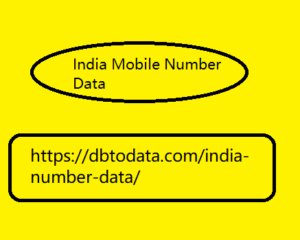Post by account_disabled on Mar 10, 2024 5:39:14 GMT -5
The media landscape of 2021 will be characterized by a profound evolution of places on the internet ( instant messenger and social media ) and the transformation of the contents that will populate them (in particular video ones ). Two elements that companies must carefully consider when defining their way of being online. Added to these is a third element that makes the panorama even more complex: influencers. In recent years, influencers have often been derided, treated as freaks, do-nothings. In reality, anyone who hadn't stopped to observe the surface would have discovered a very heterogeneous category of people ranging from the celebrity posing to the boy playing in his bedroom, through to the science communicator. All united by the desire to express themselves publicly through digital tools and the internet, beyond the size of their following.
Today this category can no longer be snubbed or ignored by marketers if it is India Mobile Number Data true, as it is, that more and more people trust influencers. Research by Nielsen Global Media found that 77% of Italians who use social media trust influencers when they talk about products and services. But we are witnessing a phase of mutation that will represent a discontinuity between the old and the new concept of influencer. A phase in which the technological, social and market transformations that characterize our time have an impact. Identity In the past, influencers were essentially indistinguishable because they were simple repeaters of pre-packaged messages. Companies used them as a mere distribution channel. In a much more competitive context, like today's, influencers need to differentiate themselves from their competitors to survive (in fact, everyone competes to capture people's attention).

This means, first of all, trying to build a strong and recognizable identity in the eyes of your audience, identifying a substantial distinctive element. In 2020, some did so by taking a clear position on social issues, from racism (supporting the Black Lives Matters movement), to the environment (Fidays For Future), to diversity. Even in Italy, in the year of the pandemic, there are those who have made their followers aware of the correct hygiene rules to avoid contagion from coronavirus and those who have promoted concrete charitable initiatives. The same research cited above found that as many as 83% of Italians who use social media trust influencers when they deal with social issues. Professionalization At the same time, to emerge, influencers need to work on their skills and ability to produce content (educational or entertainment) in a professional manner.
Today this category can no longer be snubbed or ignored by marketers if it is India Mobile Number Data true, as it is, that more and more people trust influencers. Research by Nielsen Global Media found that 77% of Italians who use social media trust influencers when they talk about products and services. But we are witnessing a phase of mutation that will represent a discontinuity between the old and the new concept of influencer. A phase in which the technological, social and market transformations that characterize our time have an impact. Identity In the past, influencers were essentially indistinguishable because they were simple repeaters of pre-packaged messages. Companies used them as a mere distribution channel. In a much more competitive context, like today's, influencers need to differentiate themselves from their competitors to survive (in fact, everyone competes to capture people's attention).

This means, first of all, trying to build a strong and recognizable identity in the eyes of your audience, identifying a substantial distinctive element. In 2020, some did so by taking a clear position on social issues, from racism (supporting the Black Lives Matters movement), to the environment (Fidays For Future), to diversity. Even in Italy, in the year of the pandemic, there are those who have made their followers aware of the correct hygiene rules to avoid contagion from coronavirus and those who have promoted concrete charitable initiatives. The same research cited above found that as many as 83% of Italians who use social media trust influencers when they deal with social issues. Professionalization At the same time, to emerge, influencers need to work on their skills and ability to produce content (educational or entertainment) in a professional manner.
